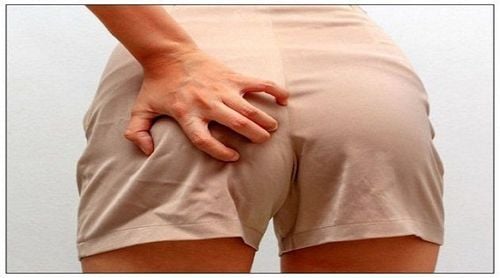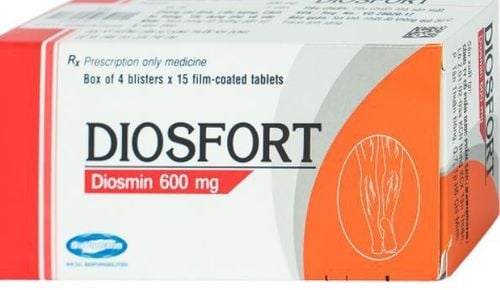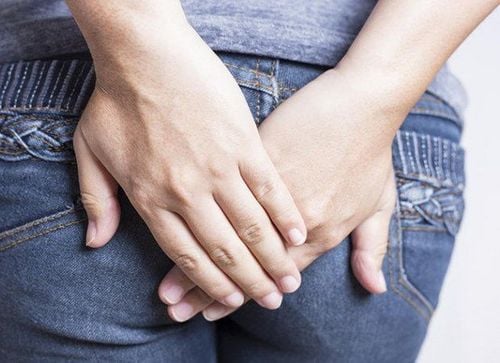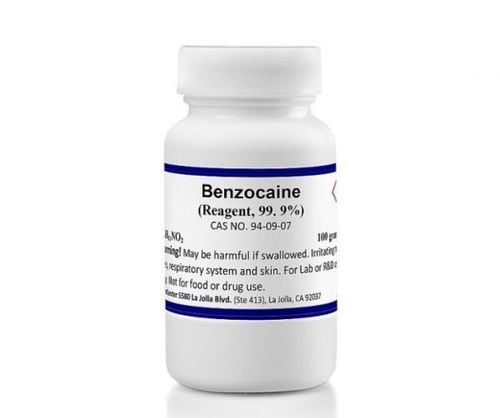The article was written by Master, Dr. Mai Vien Phuong - General Internal Medicine & Outpatient department –Vinmec Central Park International Hospital.
Experiencing diarrhea can leave the body feeling uncomfortable. When accompanied by a burning sensation or pain in the anus during bowel movements, the issue becomes even more challenging. Read on to understand the potential causes of burning diarrhea, home treatment options, and when to consult a doctor for further evaluation.
1. Causes
There are multiple causes of diarrhea. Consult a doctor whenever you notice changes in your bowel habits. However, many common causes can often be managed at home.
Spicy Food
If this is your first time noticing diarrhea, think about what you’ve eaten recently. Spicy foods, like chili peppers, contain capsaicin. This naturally occurring compound is similar to what is found in pepper spray, mace, and topical pain relievers. Capsaicin creates a burning sensation on contact. Consuming large amounts of spicy food can lead to symptoms like diarrhea and discomfort.
Hemorrhoids
Did you know constipation and diarrhea sometimes occur together? Over time, constipation and other conditions can cause hemorrhoids, which are swollen veins in the anus or rectum. These inflamed veins can result in burning and pain during bowel movements.
Irritable Bowel Syndrome (IBS)
Chronic diarrhea associated with irritable bowel syndrome (IBS) can also cause discomfort and burning sensations. IBS is more common than you might think. Around 1 in 5 Americans experience IBS symptoms, but fewer than 20% of those affected seek medical help. The exact cause of IBS is unknown, but triggers may include specific foods, excessive stress, or hormonal changes.
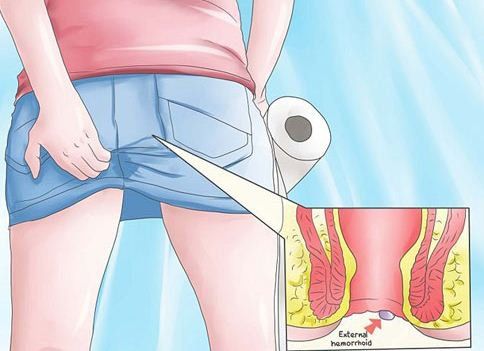
2. Symptoms
Additional symptoms accompanying burning diarrhea may vary depending on the cause.
Spicy foods
Eating spicy foods can cause:
Stomach cramps
Nausea
Vomiting
Frequent bowel movements
Hemorrhoids
Hemorrhoids often result from straining during bowel movements. They are also common during pregnancy, after childbirth, or whenever excess pressure is applied to the anal region. Symptoms include:
Painless rectal bleeding during bowel movements
Pain and itching around the anus
Swelling or a lump near the anus
Fecal leakage
Irritable Bowel Syndrome (IBS)
Symptoms of IBS often vary. It is a chronic condition, so symptoms may come and go:
Abdominal pain and cramping
Flatulence
Bloating
Alternating diarrhea and constipation
Mucus in stool
3. Home Treatments
Several methods can help alleviate symptoms at home. In many cases, burning diarrhea is temporary and responds well to lifestyle changes and over-the-counter medicines.
Spicy Food
If you suspect spicy food as the cause of your burning diarrhea:
Limit or eliminate spicy foods from your diet.
Keep a food diary to identify which foods trigger symptoms.
Hemorrhoids
Mild hemorrhoids often resolve on their own if risk factors are avoided.
Use over-the-counter hemorrhoid creams to relieve discomfort, burning, and itching.
Soak the anal area in warm water or sit in a warm bath for 10–15 minutes several times a day.
Switch to moist wipes or wet toilet paper instead of dry toilet paper.
Take pain relievers like acetaminophen or ibuprofen for temporary relief.
If rectal bleeding occurs, consult a doctor for proper diagnosis and treatment.
Irritable Bowel Syndrome (IBS)
Although IBS is a chronic condition, you can manage flare-ups with these tips:
Adjust your fiber intake. High-fiber diets help with constipation, but excessive fiber can cause bloating and cramps in some individuals.
Keep a food journal to identify which foods exacerbate symptoms.
Exercise regularly and drink plenty of water to promote healthy bowel movements.
Eat smaller, more frequent meals during episodes of diarrhea.
Use over-the-counter anti-diarrheal medications cautiously, as misuse may cause other medical problems.
Explore alternative therapies like acupuncture, probiotics, yoga, or meditation to alleviate symptoms.
For chronic IBS, your doctor may prescribe medications like alosetron or lubiprostone. Use these only under medical supervision.
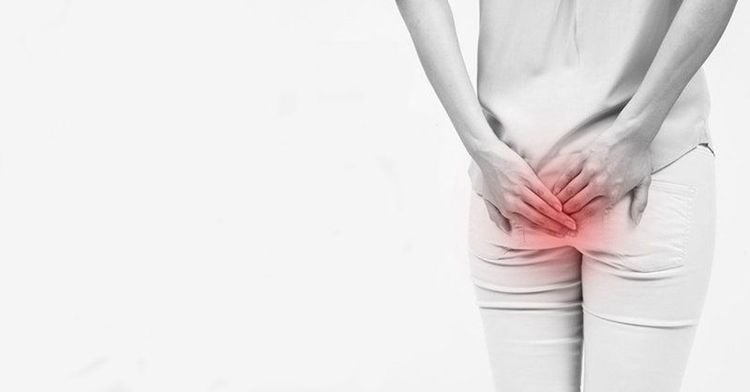
4. When to see a doctor
Contact your doctor whenever you notice significant changes in your bowel habits. Many causes of diarrhea are temporary and treatable at home, but certain conditions like IBS or colon cancer require specialized care.
Seek immediate medical attention if you experience:
Rectal bleeding
Worsening abdominal pain, especially at night
Unexplained weight loss
During your doctor’s visit, be prepared to discuss your medical history and symptoms in detail. Writing down your concerns beforehand can help.
Tests may include:
Rectal examination: The doctor may insert a gloved, lubricated finger into the rectum to check for growths or lumps requiring further evaluation.
Visual inspection: Internal hemorrhoids or other issues not visible externally may require tools like an anoscope, proctoscope, or sigmoidoscope for examination.
Colonoscopy: If you're over 50 or at risk for colon issues, your doctor may recommend a full colonoscopy to examine your entire colon.
Conclusion
Diarrhea can be uncomfortable and even worrisome. The good news is that it doesn’t always indicate a severe condition. If you’re concerned about changes in your bowel habits, reach out to a doctor for an evaluation. You can schedule an appointment with a gastroenterologist at Vinmec Medical System for a thorough consultation. Alternatively, monitor your diet, manage hemorrhoids, and address any triggers to minimize discomfort.
Vinmec International Hospital stands out for its high-quality medical care, modern equipment, and professional services. The hospital provides comprehensive and hygienic healthcare in a comfortable, safe, and sterilized environment.
The Gastroenterology - Endoscopy Department is one of Vinmec's specialized units. For timely diagnosis and treatment of digestive disorders, you can contact Vinmec’s nationwide system or schedule an appointment via our website.
Please dial HOTLINE for more information or register for an appointment HERE. Download MyVinmec app to make appointments faster and to manage your bookings easily.
References
Diarrhea. (2016, July 19)my.clevelandclinic.org/health/diseases_conditions/hic_Diarrhea
Mayo Clinic Staff. (2016, October 25). Diarrheamayoclinic.org/diseases-conditions/diarrhea/basics/definition/con-20014025
Mayo Clinic Staff. (2016, September 29). Hemorrhoidsmayoclinic.org/diseases-conditions/hemorrhoids/basics/definition/con-20029852
Mayo Clinic Staff. (2014, July 31). Irritable bowel syndromemayoclinic.org/diseases-conditions/irritable-bowel-syndrome/basics/definition/con-20024578
McDaniel-Price, A. (2010, October). Capsaicin: When the “chili” is too hotpoison.org/articles/2010-oct/capsaicin-when-the-chili-is-too-hot
Stewart, J. (2015, October 29). Why your poop burns after eating spicy foodsmenshealth.com/health/burning-butt





